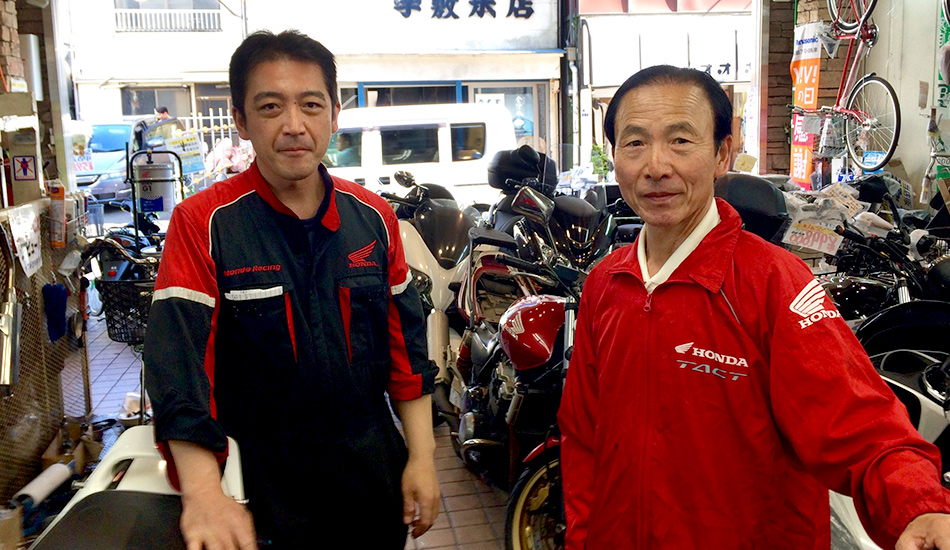Wheely Great Service at Auto Service Wako
Published: June 12, 2018
Auto Service Wako has been selling, servicing, repairing and trading-in motorbikes, scooters and bicycles for 70 years now. Located on a quiet back street a few minutes’ walk from Ojima Station, the family business is currently run by third-generation manager Mr. Isamu Takashima. On a recent sunny afternoon, Mr. Takashima and his father Hideki spared a few minutes to chat about their company, its products and services
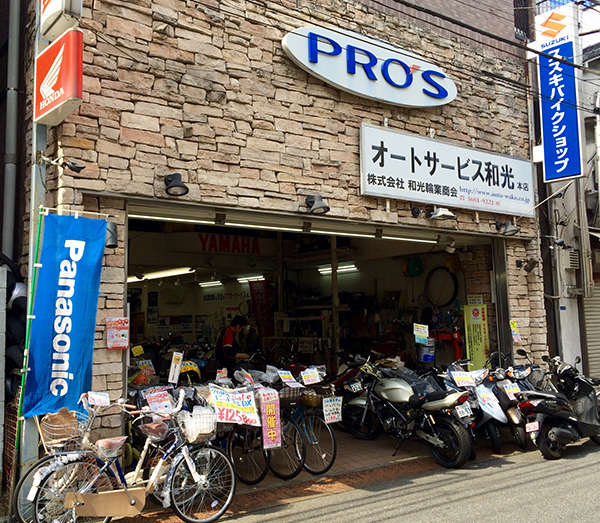
“My grandfather established the business in 1948 in Asakusa. He later moved it to Kameido and now we’ve been here in Ojima for 50 years. I started working in the shop after I left school,” says Mr. Takashima. “I worked during the day then went to night school in the evenings and on Sundays to gain my qualifications. I studied all over Tokyo; Shinagawa, Kameido and Nakano. In those days I used to go touring with the customers, down to Izu or out to Hakone. Nowadays I don’t go touring; my hobby is visiting hot spring resorts but I still love bikes though. Most of our business is sales, maintenance, repairs and the vehicle inspection check (“shaken” in Japanese).”
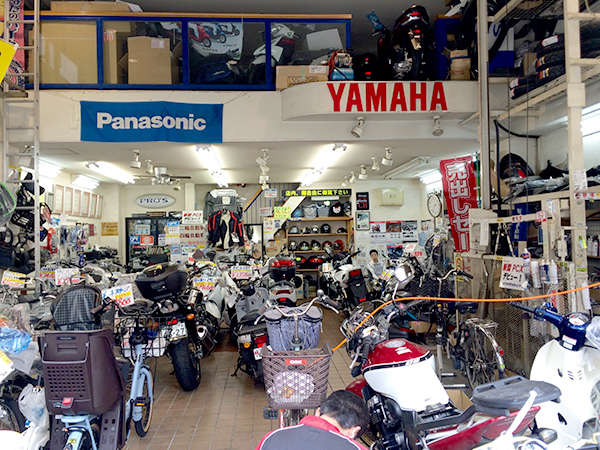
We are joined by the elder Mr. Takashima who regales us with colourful stories of life in post-war Tokyo: dodgy geezers, snakes and scrapping and scrambling. “We used to sell bicycles made by the Hikari Company and that’s where our name Wako comes from,” says Mr. Takashima. Hikari means light or illumination, as well as hope or happiness. “We also sold Midori, Yamaguchi and Maruuchi brands. Business was good in those days as the economy was picking up and the bikes themselves were stylish and well-designed. In the early to mid-sixties, there was a downturn in the bicycle business and many smaller makers went bust or merged with major companies. We then got into the scooter and motorcycle trade.”
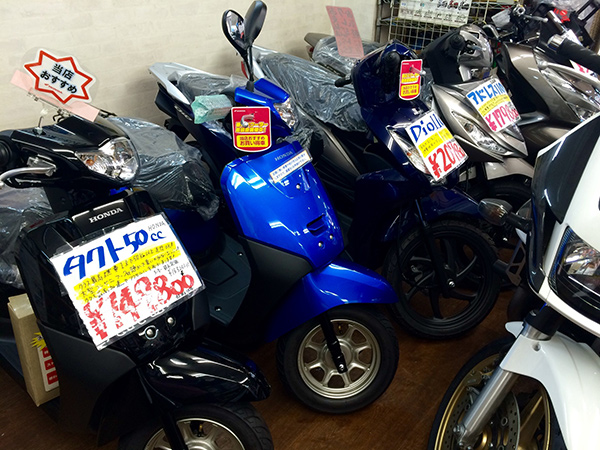
So, what’s new on two wheels in 2018? “Hybrid electric scooters,” answers Mr. Takashima. “We mainly deal with Honda and the new PCX 125 is the next big thing.” They’re lightweight, surprisingly powerful and accelerate from 0 to 60 very quickly as they have no clutch. Equally as important these days, they’re environmentally friendly and economical. “Sales of scooters are finally rebounding after the law on parking changed in 2006 and wiped out 50% of the market almost overnight. Parking laws are being relaxed and that’s helping sales.”
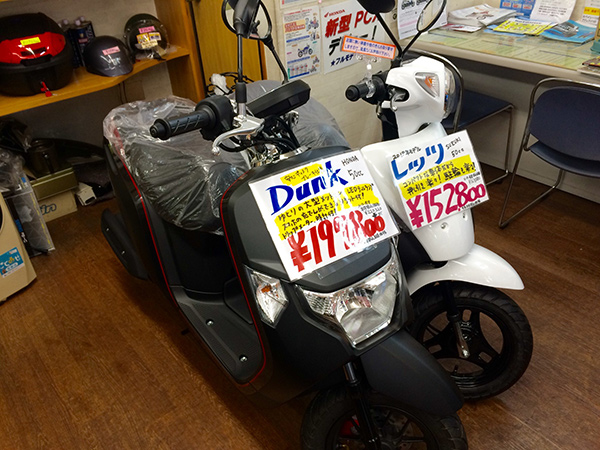
Alongside the new generation of hybrid electric scooters, Auto Service Wako offers a variety of regular scooters for sale, such as the 50cc Honda Tact, the 50cc Honda Dunk, the 110cc Honda Dio and the 50cc Suzuki Let’s. Prices are reasonable and the after-sales service is great. A female customer who had come to have a bike serviced spoke glowingly of Mr. Takashima’s customer service and his role in the local community.
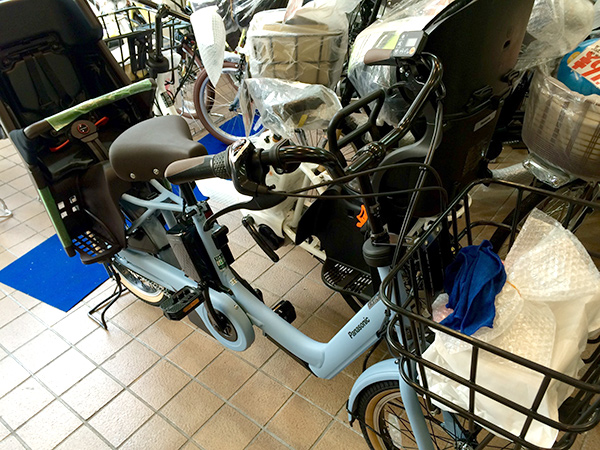
Electric bikes, known as “electric assist” in Japan, have enjoyed a boom in popularity in recent years. Manufacturers have profited from extended battery life, a switch from chain to belt drives and general improvements in overall quality while becoming cheaper in relative terms.
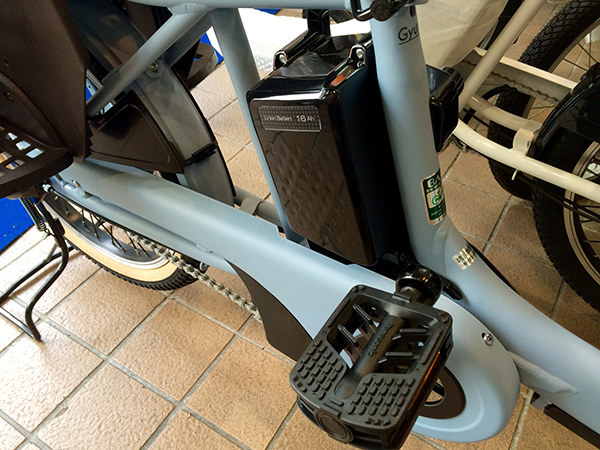
Electric bikes are particularly popular among parents who must ferry small children to and from nursery schools or kindergartens. The many bridges that span the canals and rivers of Koto-ku may be picturesque but are hard work on a regular bicycle with a couple of kids on board. These popular Panasonic Gyutto Mini DX bikes are designed to accommodate two children.
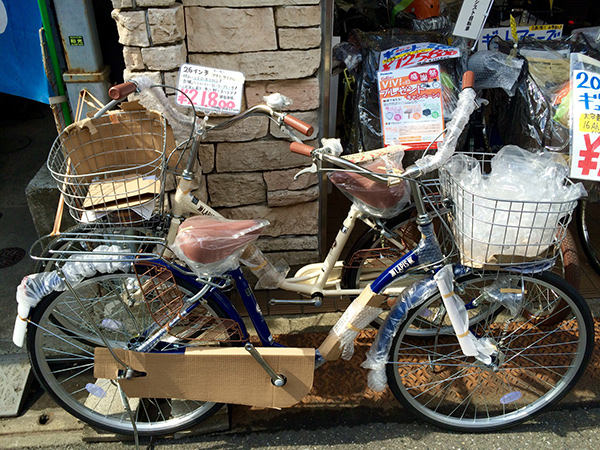
While the principal business of Auto Service Wako may be engine-powered there is still room for the traditional bicycle. Here we see Lapis brand city bicycles at affordable prices.
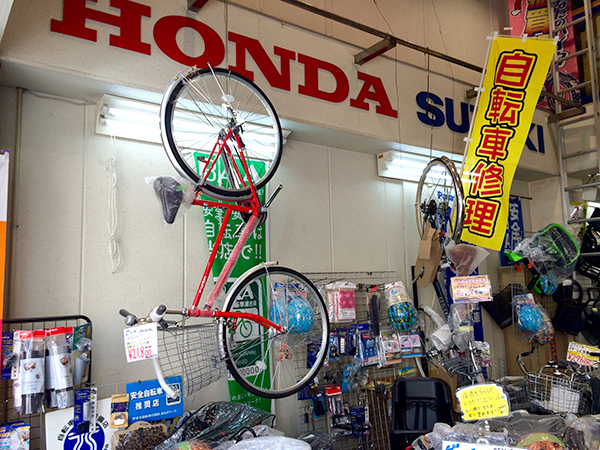
While an Asahi e-union and a Shimano Geo Cross hang from the ceiling.
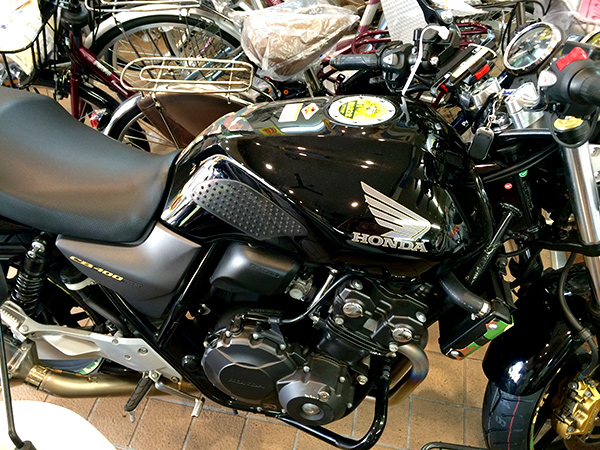
Auto Service Wako wouldn’t be a bike shop without motorcycles. Here’s a Honda classic, the CB400 Super Four. All yours for under 500,000 yen.
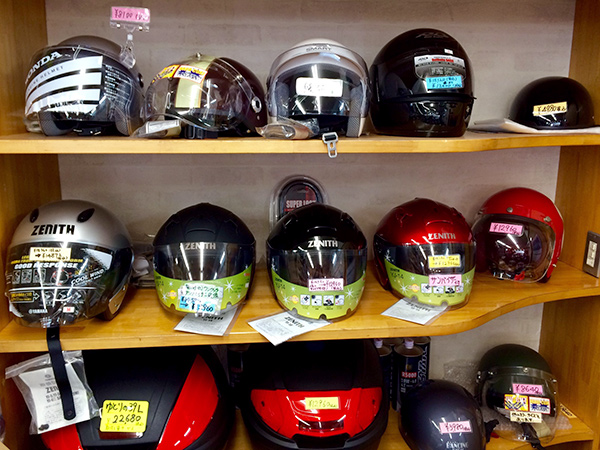
You can even pick up a new helmet while you’re here.
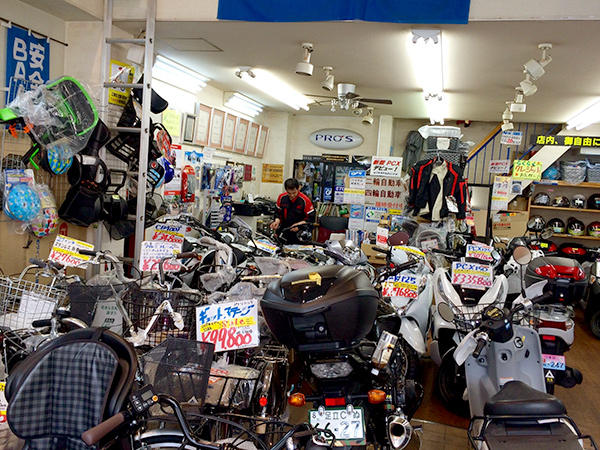
Whatever your needs on two wheels, Auto Service Wako is the place to go. Mr. Takashima senior is a living encyclopaedia of post-war Japanese bike and scooter history, from golden age names like Tohatsu, Marusho/Lilac and Meguro to the Fuji Rabbit and Mitsubishi Silver Pigeon. The Ojima area’s international community are frequent visitors to the shop where the younger Mr. Takashima speaks a little English. “Just a little,” he says laughing, “And sign language.”
Story and Photos by Stephen Spencer

